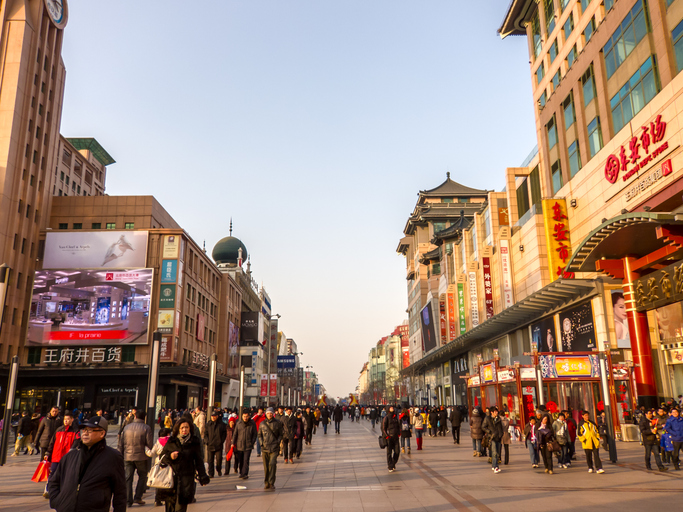Aiming for the messy truth: The first Australian journalist returns to China
September 2, 2024
Will Glasgow’s report from Beijing in the Weekend Australian of 24/25 August is cause for celebration. Since the last Australian journalist left China four years ago, reports on this most important neighbour and on matters of concern to both countries have been either second-hand or coming from non-Australian sources.
Although it is ironic that the first correspondent to return represents the Murdoch press that has been strongly aligned with the conservative side of American and Australian politics, one hopes that other Australian newspaper, radio and television media organisations will soon have their own representatives in China.
Glasgow had returned to Australia from Beijing in 2020, to meet his wife and to make arrangements for the couple to move to China, when he was contacted by the Department of Foreign Affairs and Trade and advised not to do so. Perhaps this was not surprising. The year 2020 marked a new low point in bilateral relations. In April that year, Prime Minister Scott Morrison called for an independent inquiry into the origin of the Covid-19 virus. In June, Australian security intelligence agents raided the homes of four journalists working for the Xinhua News Agency and China Media Group. In August, Cheng Lei, an Australian journalist working for the state-run China Global Television Network in Beijing, was detained and subsequently imprisoned. In September, the Australian Financial Review’s correspondent Mike Smith and the ABC’s Bill Birtles were questioned by Chinese security agents and then assisted by DFAT to leave China.
For four years after that, there was no direct reporting on China for the Australian audience. Second-hand views evolved into a sinister game of “Chinese whispers”, distorting the picture in the press. Accounts were not only one-sided, they lacked the nuanced understanding and interpretation that is natural to someone with direct experience.
The resumption of reporting from China is, therefore, welcome. Glasgow is still settling in and finding his feet, and detailed reporting on substantial issues is yet to come, but his first podcast was chatty and informative and gave some insights into life in Beijing in 2024. He said he was impressed that the city smog had vanished and that the city was green, clean and technically advanced. He noted the growing disparity between rich and poor, with signs of small businesses struggling and a downturn in the property market, and added that one thing that had not changed was the difficulty of global internet access.
Glasgow noted that Chinese officials welcomed his return to Beijing and emphasised that it was a great opportunity for him to be a “bridge builder”. This, of course, is an unreal expectation. The proper work of journalists is to provide accurate, fair and thorough information, and this is not helped when governments seek to broadcast a relentlessly positive story to the outside world, any more than when media owners and editors set a particular line that determines what stories are accepted and how they are presented.
Reporting from the field is further complicated by the enactment of legislation by both governments designed to prevent foreign interference. According to this year’s Lowy Institute public opinion poll, Australians are increasingly suspicious of Chinese intentions and see China more in terms of a security threat than an economic opportunity. Not surprisingly, in the face of widespread anti-China sentiment in the West, the Chinese Ministry of State Security, in this post (in Chinese) on its official WeChat account, last year called on all citizens to be on their guard against spies and to report suspicious activities. Many people will, undoubtedly, be wary of sharing candid views with foreign journalists.
Some insight into the difficulties facing foreigners who write about China based on their own experience of living and working there comes from American writer, journalist and teacher, Peter Hessler. He wrote a long article in _The New Yorker_ on 30 March 2020 about his experience of life in Chengdu, Sichuan Province during the initial Covid lockdown. It was a candid account of family tragedies, of the tragic death of Li Wenliang, the doctor who first warned of the virus, and also of the resilience of the people and the effective aspects of the management of the pandemic. Such a detailed picture could only be presented by someone who had lived through it all, yet it prompted commentators outside China, led by New Zealand-based Australian scholar Geremie Barme, to accuse him of pro-China bias. Reviewing successive attacks in a recent article published in the _China File_ blog, Hessler wrote that outside commentators that he called “sideline sinologists” suffered from tunnel vision and a “zero-sum mindset”, largely the consequence of reporting on China from the outside.
As Hessler observes, those who do write from inside China work under extraordinary pressure. They should be applauded for sacrificing much to make the move and to accept the restrictions that go with being in the field. There are many grey areas of vulnerability, including the definition of state secrets. There are ultra-nationalists in China, as elsewhere. There are pressures from all sides to present a black and white picture: “China bad” or “China good”. If all these obstacles can be overcome, ultimately what is needed, and what can only be provided by a well-informed local correspondent, is the unbiased, unvarnished, messy truth about a country that we all need to know and to understand.
I send every good wish to Will Glasgow!

